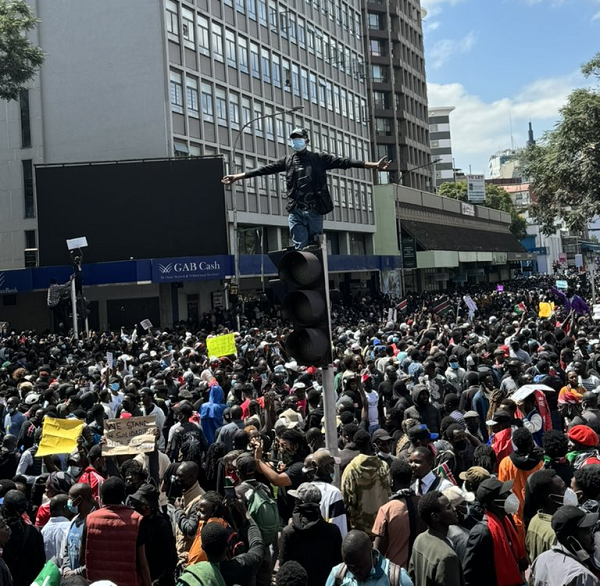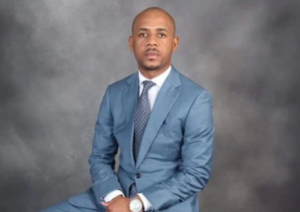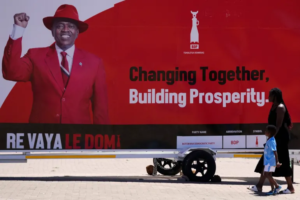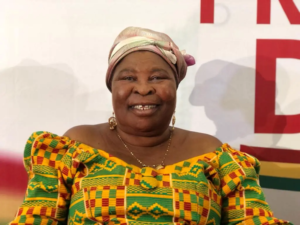
The death toll from anti-tax hike protests in Kenya has risen to 13, according to the Kenya Medical Association. The demonstrations, which began peacefully last week, escalated violently on Tuesday as police fired live rounds at protesters who stormed and ransacked parliament in Nairobi.
The protests, led primarily by young people, were against proposed tax increases. The situation intensified when demonstrators breached police lines, set parts of the parliament complex ablaze, and vandalized the interior, including stealing the ceremonial mace. Police responded with live ammunition, resulting in multiple deaths and injuries.
President William Ruto’s government has deployed the military to assist the police in handling what has been termed a “security emergency.” Ruto condemned the violence, labeling some protesters as criminals and warning that his government would take a tough stance against “violence and anarchy.”
Simon Kigondu, president of the Kenya Medical Association, reported that medics at Kenyatta National Hospital were treating 160 people with injuries ranging from soft tissue damage to bullet wounds. Unverified reports also suggest additional deaths in other areas affected by the protests.
The protests were sparked by a finance bill proposing several tax hikes, including a 16% tax on bread and sanitary pads, which have been widely criticized. Despite some concessions by the government, protesters demanded the complete withdrawal of the bill.
Human rights groups, the church, and international bodies, including UN Secretary-General Antonio Guterres, condemned the use of live ammunition against protesters and called for restraint. Former President Uhuru Kenyatta urged dialogue to resolve the crisis.
The demonstrations, organized largely through social media, have gained international attention and support from prominent figures like Ugandan opposition leader Bobi Wine and South African politician Julius Malema. The unrest has prompted concerns from Western countries, which have called for calm and peaceful resolution.






Be First to Comment